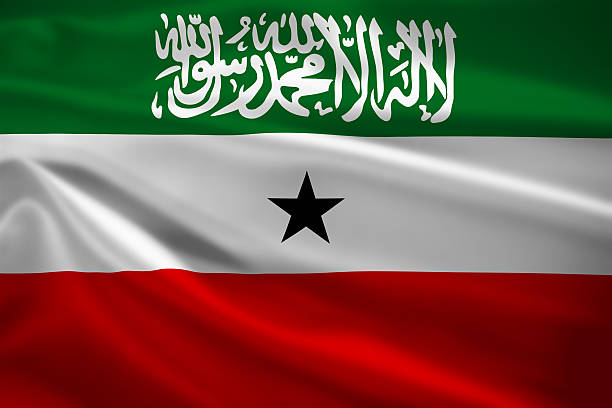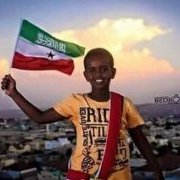With no visible means of support The unexpected success of Somaliland
By Kieran Pender
For some time now, our global landmass has been neatly divided into the 193 member states that make up the United Nations. Cartographically, the world has remained remarkably static in recent years, with just one new member admitted to the club of nations in the past decade (South Sudan) and only three in the decade before that.
This stasis belies a convenient fiction, however. In a number of places, the cartography does not reflect the reality on the ground. Some examples are prominent – Palestine, say, which is recognized by over two-thirds of UN member states but lacks full acceptance on the international stage. Google Maps uses a dotted line to delineate its border with Israel. Northern Cyprus gets the same treatment: it is recognized only by Turkey. So too does Kosovo, which has received over a hundred diplomatic recognitions.
Such cartographic oddities multiplied in the 1990s, during a wave of violent secessionist conflict. In the Caucasus, Abkhazia and South Ossetia broke away from Georgia following the dissolution of the Soviet Union. Georgia claims that both are now Russian-occupied; most locals disagree. Transnistria is a narrow sliver of land between Moldova and Ukraine, which seceded around the same time, as did Nagorno-Karabakh in Azerbaijan. Elsewhere, Iraqi Kurdistan, Western Sahara and Somaliland have similarly found themselves with some degree of sovereignty but without international recognition: “square pegs in a world of round holes”, according to the politics professor Deon Geldenhuys.
These de facto nations have all the trappings of statehood – passports, currency, flags, elections, parliaments – but they are routinely ignored by the global community. Isolated from international institutions, formal trade networks and political blocs, such pariah territories have been routinely dismissed – including by institutions such as the European Paliament – as war-torn badlands and hotbeds of organized crime. They were also assumed by many to be transitory, and thus received little scholarly attention. But in time it became apparent that they were not going anywhere. Almost three decades since many of them were spawned, they persist – real on the ground, invisible on the map.
In When There Was No Aid: War and peace in Somaliland Sarah Phillips considers a particularly peculiar example. Once a British protectorate, Somaliland enjoyed a fleeting week of independence in 1960 before merging with its southern neighbour, Italian Somaliland, to form Somalia. It was an unhappy union. Famine and oppression from the south ultimately precipitated civil war, and in 1991 (northern) Somaliland unilaterally declared independence.
Most separatists have had a patron state to provide support and limited recognition. Abkhazia, for example, was recognized by Moscow in 2008 after the Russia–Georgia war – and diplomatic acknowledgement followed from several states allied with the Kremlin. The Somalilanders had no such fortune; pleas for international endorsement of their independence fell on deaf ears. Hence the title of Phillips’s book. While most post-conflict zones benefit from considerable international assistance, Somaliland has received barely a penny.
International isolation and negligible aid were an inauspicious start for this fledging statelet, particularly as billions of pounds and swarms of international advisers poured into Somalia. Yet for all this assistance Somalia remains to this day racked by violence, piracy and terrorism. Somaliland, meanwhile, has emerged as a beacon of hope in the Horn of Africa – stable, relatively democratic and broadly functional.
For Phillips, an expert on international development, Somaliland therefore provides a curious example of development without intervention. “For all the doubts raised about the effectiveness of international assistance in advancing peace and development,” she writes, “there are precious few examples of developing countries that are even relatively untouched by it.” As a result, it is ordinarily very difficult to consider counterfactuals, which question whether aid is actually helpful. Somaliland’s example offers partial clues. Its peace was “painstakingly negotiated under the trees at dozens of clan-based conferences”, while Somalia’s was “negotiated in five-star hotels funded by the United Nations”. Only one endured.
When There Was No Aid is the result of extensive fieldwork. Phillips interviewed hundreds of people across a range of fields to understand how Somaliland secured stability while its southern neighbour remained mired in violence. She has drawn on this impressive research alongside other scholarly literature to produce a compelling account of Somaliland’s path to peace. While it is evidently written with an academic audience in mind – the book is grounded in theory and has an exhaustive reference list – When There Was No Aid is lively and accessible.
Phillips makes a compelling case for the unexpected positives of non-recognition. As one minister tells her, the country’s isolation has been a “blessing in disguise”. Because the peace process was free from “institutional endpoints favored by international donors”, Somalilanders, the author tells us, “had the freedom to cherry-pick from local and international institutional governance models and to experiment”. This enabled the country to fashion innovative models blending Western governance with local customs. A system of clan-based proportional representation (the beel) was adopted, while an unelected house of elders (the Guurti) was integrated alongside a democratic two-tier legislature, presidential executive and an independent judiciary. While these structures are not faultless – Phillips suggests that the once influential Guurti has lost local legitimacy – their endurance stands in contrast to Somalia’s abiding governance crisis.
Phillips’s most original contribution comes through her observation that stability has been maintained largely through words rather than actions. She suggests that while Somaliland’s institutional capabilities remain limited, and open to corruption – “the law here is fifty US dollars”, says one security official – the “othering” of Somalia’s continuing violence and the desire for international recognition have incentivized peace. Somalilanders, she argues, “have responded to institutional weakness by discursively compensating for it on the level of identity and by asserting their ability to maintain peace without strong institutions on the basis of that identity”. Her evidence for this is persuasive. She points to a contested presidential election in 2003, when many observers expected violence. Instead, the chair of the defeated party, Kulmiye, which had lost by just 0.01 per cent of the vote, publicly rejected the idea of forming a parallel government, saying: “I won’t go down that road, because no one can guarantee that we won’t end up like Mogadishu”. Phillips cites the absence of piracy in Somaliland as another measure of its success, putting this again down to the social consensus. As a local analyst tells her: “the population is alert to what the international community needs to see to recognize Somaliland. They want to protect that”.
Phillips is also a shrewd detective. She highlights the pivotal role played by female activists, who can “cross clan lines” to facilitate dialogue because they hold dual clan identities – familial and matrimonial. And she identifies the centrality of one local boarding school, Sheekh Secondary – privately funded but non-fee-paying – to the country’s political make-up: of the fifty or so most influential political actors during the 1990s, fully half had attended the small, merit-based, cross-clan institution. One graduate tells Phillips that the alumni network functioned “like a secondary tribe”, aiding political cohesion during the turbulent decade.
While some observers, such as the ethnologist Markus Hoehne, have called Somaliland a “sui generis” case, with little for us to learn from, Phillips disagrees. The country’s experience may have been idiosyncratic, but “this does not mean the underlying drivers of its trajectory do not have broader relevance”. In her eyes, Somaliland indicates that development institutions have been asking the “wrong question” when it comes to external intervention. “Aid matters less than we think it does because it does not alter the asymmetries that make it difficult for countries in the Global South to extract themselves from violence and poverty.” These observations are astute, and it thus seems a shame that they were crammed into the nine-page conclusion and not further explored.
Today, Somaliland is no longer quite so isolated. The UN has twenty-two different agencies operating there, under the guise of its wider activities in Somalia, while the British and Danish governments have found ways to channel assistance indirectly. The United Arab Emirates is a major commercial investor and has also cooperated on security matters. In June, the presidents of Somalia and Somaliland even met in Djibouti for peace talks. “Somaliland is at a critical juncture”, Phillips observes – even if it is not yet on the map.
Kieran Pender is an Australian writer and lawyer based in London. He has reported extensively from Abkhazia for the Guardian, Al Jazeera and Monocle








